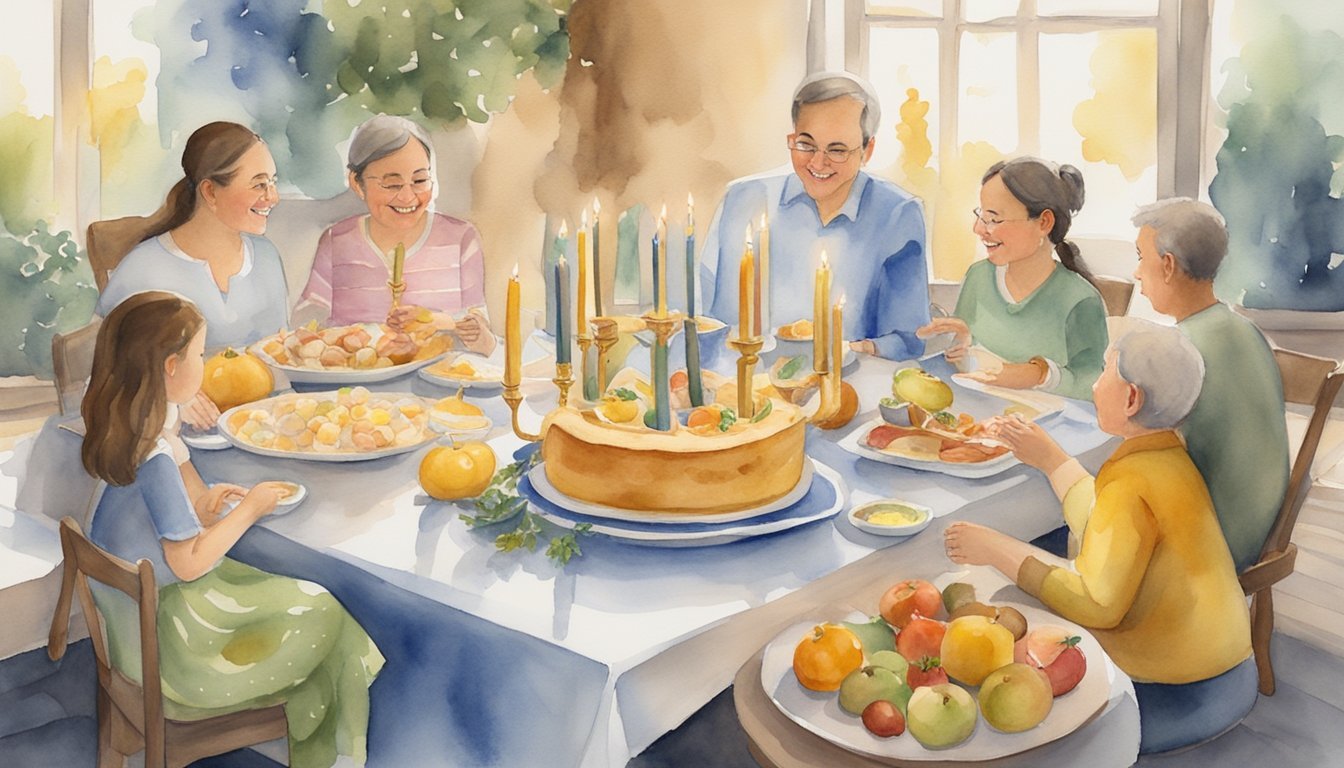Origins of Hanukkah
Hanukkah, also known as Chanukah, is an eight-day Jewish festival commemorating the rededication of the Second Temple in Jerusalem during the second century B.C. It is marked by the lighting of the menorah, with one additional light each night.
Historical Context
The origin of Hanukkah is deeply rooted in the historical strife and struggle for religious freedom in the land of Judea. The events leading up to the first celebration of Hanukkah began in the 2nd century B.C. when Judea came under the control of Antiochus IV Epiphanes, the Hellenistic Greek king of the Seleucid Empire. His policies, including the installation of a statue of Zeus in the Temple, were part of a larger effort to impose Greek culture and worship, which went against the Jewish practice and the Torah.
The Maccabean Revolt
Resistance to Hellenistic domination and the campaign to restore Jewish religious autonomy were led by a Jewish priestly family known as the Hasmoneans, or Maccabees. The revolt was sparked in 167 B.C. when Mattathias, the family patriarch, defied a Greek official’s orders to perform a Hellenistic religious practice. Mattathias’s son, Judah Maccabee, took up his father’s mantle after his death, leading the Jewish rebel army to victory and driving the Greeks from the land.
The Miracle of the Oil
Following the Jewish victory, the Maccabees rededicated the Holy Temple in Jerusalem and relit the menorah, which was meant to burn every night. According to the Talmud, although there was only enough consecrated olive oil to fuel the flame for one day, the oil miraculously lasted for eight days—enough time to prepare a fresh supply. This miracle is the foundation of Hanukkah’s eight nights of candle lighting, with each night of the festival seeing an additional candle on the menorah until all are lit on the final night.
Discover more about Hanukkah’s Historical Context, learn about the leaders of the Maccabean Revolt, and explore the story behind the Miracle of the Oil. The holiday’s rich traditions and historical significance continue to inspire Jewish communities around the world, fostering a sense of resilience and faith. While Hanukkah celebrates triumph over oppression, discussions of historical narratives often spark debate, much like the ongoing Zahi Hawass controversy in the field of archaeology. These discussions highlight the complexity of interpreting historical events and the evolving nature of cultural narratives. Just as scholars debate ancient artifacts and their origins, the exploration of traditions like Hanukkah offers valuable insights into identity and heritage. Similarly, those researching Sophia name history uncover layers of meaning behind names, tracing their roots and significance across different cultures and time periods.
Celebration and Traditions

Hanukkah, also known as the Festival of Lights, is rich in traditions that have been observed since its origin over two millennia ago. These customs embody not only the holiday’s religious significance but also its cultural impact on Jewish identity and global traditions.
Rituals and Customs
The centerpiece of Hanukkah rituals is the lighting of the hanukkiyah, a special candelabrum distinct from the menorah, which has nine branches. One candle is lit on each night of the festival, with the Shammash (helper candle) used to ignite the others. Recitation of blessings and singing songs are part of the lighting ceremony. Playing with dreidels, a four-sided spinning top with Hebrew letters, and the distribution of gelt, chocolate coins or real money, are popular practices, particularly among children.
Culinary Delights
- Latkes: Fried potato pancakes, often served with applesauce or sour cream.
- Sufganiyot: Round jelly-filled doughnuts topped with powdered sugar.
These foods fried in oil are more than just tasty; they hold symbolic importance, commemorating the oil that miraculously burned in the rededicated Temple.
Modern-Day Observance
In contemporary times, Hanukkah has taken on new forms while remaining tied to its historical roots. In North America, the holiday has become an occasion for gift-giving, mirroring Christmas traditions. Beyond the Hanukkah menorah lighting, families and communities come together to share in the joy and gladness through gatherings that often include holiday-specific songs and prayers. As a sign of identity and affirmation, Jewish communities around the world adapt the festival to local customs, culminating in a unique yet universally recognized celebration.

